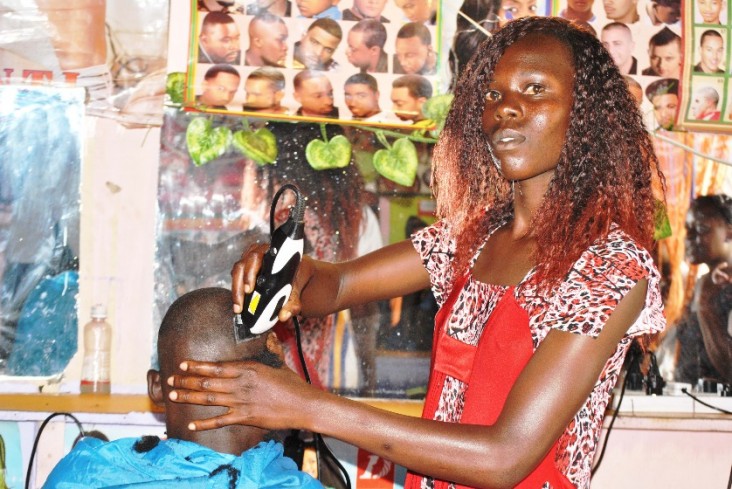
February 2017—For as long as she can remember, Mildred Wanjala, 25, was determined to excel. As a primary school pupil in Kenya’s Bungoma County, she dreamed of becoming a teacher, but her responsibilities as the first born of seven presented another, even greater, responsibility: helping to provide for her younger siblings.
Her parents were subsistence farmers; they ate what they grew on their small piece of land and were unable to raise money consistently for her school fees. Term after term, Wanjala missed classes.
“I was a regular absentee,” she said. “Fee arrears accrued until I was barred from attending classes.”
Eventually, in 2010, before completing Form 1 (9th grade), Wanjala was forced to drop out.
“I felt like I had failed the entire family,” she said. “Their success seemed to depend on mine. It was my duty to set a good example and inspire them to follow in my footsteps.”
Wanjala worked hard to shake off the negative perception associated with youth who drop out of school. Some young women in her community married young to escape being labeled as a “failure.”
To contribute to her family, Wanjala began selling vegetables from her parent’s farm at the local market. At the same time, she couldn’t escape the fact that she wanted more in life.
In September 2016, Wanjala attended a workshop on financial literacy and entrepreneurship as part of the USAID Kenya Youth Employment and Skills program. She learned how to access credit from conventional lenders and through a village savings and loan association (VSLA). By pooling funds from members, VSLAs provide people—regardless of their employment status, assets or income—with regular access to small amounts of local capital on flexible terms.
“I discovered that I could run my own business and nurture it gradually as it grows bigger,” said Wanjala.
Her involvement in USAID activities also helped her obtain a national identification card, without which she wouldn’t be able to register her business or apply for a loan.
Soon after the training, Wanjala secured a loan from a VSLA to start a barbershop. A year later, her business is growing and she now offers hairdressing and tailoring services.
A 2016 World Bank study found that Kenya had the largest number of unemployed youth in East Africa, with nearly one in five Kenyan youths of working age without a job. Wanjala’s story echoes that of many young people in Kenya—they are looking for a better way of life, but lack the education or skills to compete in the job market, or the resources or know-how to start their own small businesses. With much higher unemployment rates than the rest of the Kenyan population, even many young people who have completed high school are not able to land a steady job.
USAID’s workforce development activities are demonstrating significant returns—not only to young Kenyans, but to local economies that are important to the success of newly devolved county governments. In 2016, USAID programs provided vocational and business training to more than 52,000 young Kenyans between 18 and 35 years old, many of whom lacked high school diplomas. After the training, about 94 percent of the graduates found jobs in industries such as plumbing, masonry, poultry farming, retail and financial services. Others gained insight and access to startup capital to invest in their own small businesses.
These young Kenyans are demonstrating that, when given the chance, even those who are disadvantaged or come from the most marginalized communities can learn new skills that make them productive employees and entrepreneurs. Like Wanjala, youth in Kenya are capable of fueling growth and progress in their communities.
LINKS
Follow @USAIDKenya, on Facebook, on Flickr, on YouTube







Comment
Make a general inquiry or suggest an improvement.